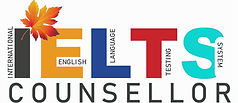Diploma in Professional English Fluency

COMMUNICATE CONCISELY, PRECISELY, AND CONFIDENTLY
Introduction
The training program will invariably, cover the major areas based on the desired outcomes, with special focus on application of the learnt skills; This syllabus will be replicated or metamorphosed to suite the levels and professional needs of each individual participant and an additional module would be included to teach them the English they need for their professions.
Course Outline
Course Code | Duration | Individual (Rs.) | Corporate (Rs.) |
|---|---|---|---|
DE011 | 6 months | 12750 | 8750 |
Study Mode
Online / Offline / Distance Education
Diploma in English for Professional Communication prepares learners with the tools needed for effective communication. Students are trained to communicate professionally, write concisely, speak impressively, and display their critical thinking by using their cognitive skills in professional settings. This course is designed in accordance with the Common European Framework of Reference for Languages (CEFR), and can be taken individually or through corporate training.
Modules | Units | Credits | Hours |
|---|---|---|---|
10 | 20 | 2000 | 100 |
This course is based on the European English Proficiency Framework Level B2 to C2. Formation of Study-Groups and Batches : Participants are grouped into the following categories:
GROUP 1 : Beginners or Elementary
GROUP 2 : Pre-Intermediate
GROUP 3 : Intermediate
GROUP 4 : Upper-Intermediate
GROUP 5 : Advanced

Training Cycle
Participants would be tested for progress, and performance reviewed frequently A test based on multiple choice questions. – 30 minutes. A written examination to test the professional use of English. – 60 minutes. An interview to test the verbal communication in a meeting. – 15 minutes each A PowerPoint slide presentation to be presented in the company premises. A presentation in the classroom (online, to be recorded for assessment) – 5 to 7 minutes each. A brief project submission with their own feedback about their progress. (500 words)

Corporate Training
A custom-made training program that upgrades the English language skills to practically usable forms:
Following steps would be taken in case, the course is conducted as Corporate Training:
Step 1: Categorizing students into small groups according to their English levels.
Step 2: Improving their grammar and English usage skills.
Step 3: Collecting, introducing, and explaining the glossary of their professional fields through exercises.
Step 4: Applying the above in business communication such as telephoning, e-mailing, reporting, etc.
Step 5: Training all of them to create and deliver presentations professionally (includes PowerPoint usage.)
Step 6: Tracking progress through assignments and regular reviews.
Step 7: Reviewing final outcomes through a practical approach

Who needs the
Diploma in Professional English Fluency
?
A Diploma in English Language Proficiency can benefit various individuals based on their goals and contexts. Here are some scenarios where such a diploma is valuable:
1. Non-Native English Speakers Pursuing Higher Education:
If English is not your first language and you plan to study abroad at an English-speaking university, a diploma in English language proficiency can be useful. Some universities require this certification from international students to consider their applications
2. Students Seeking Admission to English-Taught Programs:
If you haven’t taken a course taught entirely in English in a country approved by the relevant institution, demonstrating English language proficiency becomes essential. A diploma can serve as evidence of your language skills.
3. Professionals in International Business Settings:
For professionals aiming to negotiate and persuade effectively at senior management levels in global business environments, a high level of English proficiency is crucial. A diploma validates your ability to communicate fluently and confidently in English.
4. Individuals Pursuing Postgraduate or PhD Programs:
Preparing for and passing a diploma exam demonstrates that you have the English proficiency needed to study or work in very senior professional or academic environments. It’s particularly relevant for those pursuing advanced degrees.
Thus, a diploma in English language proficiency opens doors to educational opportunities, career advancement, and effective communication in diverse settings. Whether you’re a student, professional, or aspiring academic, consider the benefits of obtaining such a diploma.

